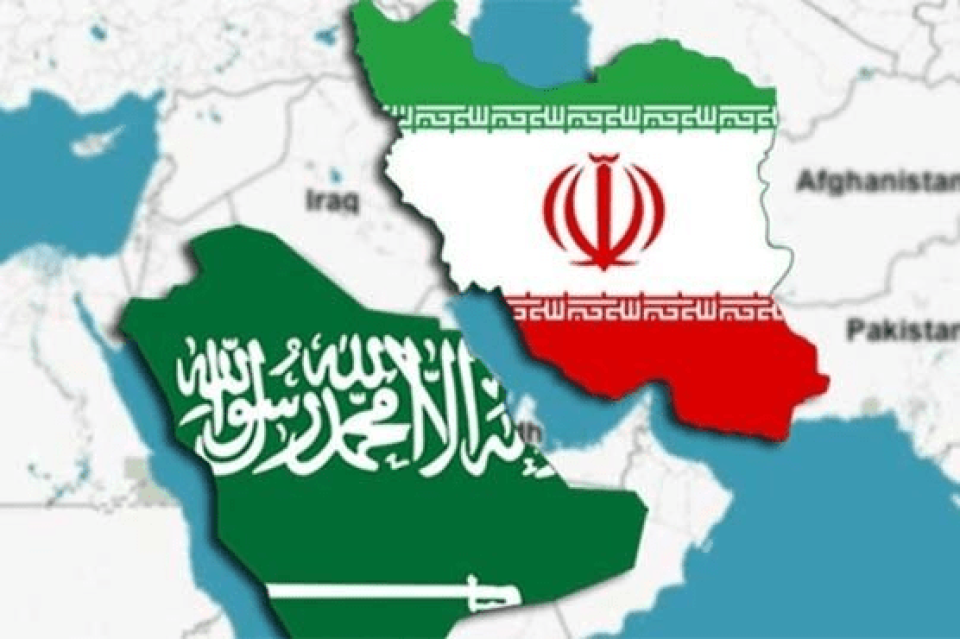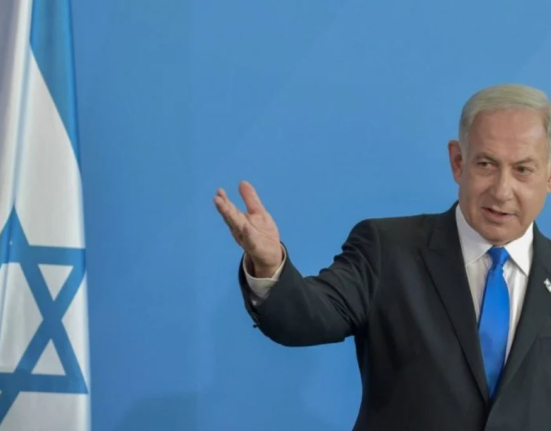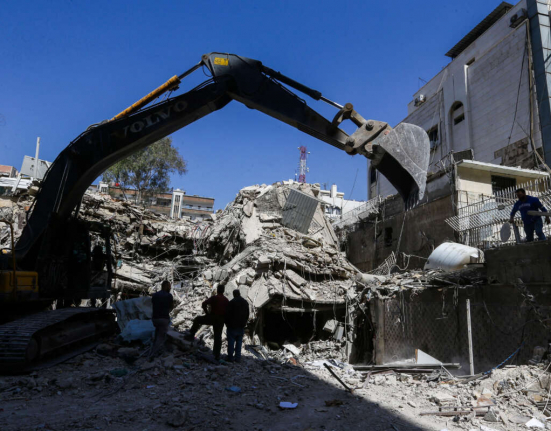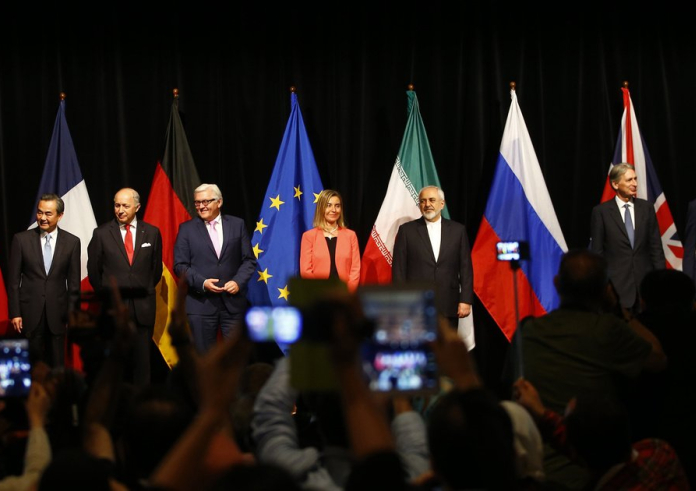by: Dr. Azam Mollai, Researcher in International Relations , MIDDLE EAST EXPERT
After the severance of diplomatic relations between Iran and Saudi Arabia in December 2015, relations between the two countries experienced various ups and downs. Although the unwavering support of the Trump administration, former US President, made Saudi Arabia feel no need to renew and improve its relations with Iran during these years, with the change of government in the United States and the presidency of Joe Biden, the situation has largely changed. Biden and his advisers have repeatedly spoken about the need to end the Yemeni war, cutting off the US military support to Saudi Arabia, and control the US in accordance with human rights, and in the case of Iran, as advertised during the presidential election campaign, the ineffectiveness of Trump's policy of maximum pressure and the need to return to JCPOA (A Time for Talks, 24 August 2021). The Biden administration's interim directive on the US National Security Strategy, released in March 2021, lists the main threats to the United States, China and Russia, and what they call rebellious governments or regimes (including the Islamic Republic of Iran) are given the next priority (Interim National Security, March 3, 2021). Accordingly, many analysts believe that under the new strategy, the United States, while maintaining its limited presence, will avoid costly interventions in Persian Gulf (Calabrese, January 4, 2021).
The release of these documents and the stances of US officials convinced the Arab Gulf states and, above all, Saudi Arabia, that the period of escalation, pursuit of Iranophobia and increasing international pressure on Iran was over, and the fact that the new US administration has no incentive to enter into these issues and there is no support for these conflicts in the West Asian region and the Persian Gulf. This prompted Saudi Arabia to express a desire to start talks and resolve disputes with Iran.
The Islamic Republic of Iran, which pursues strategic goals such as forming a local and endogenous security system in the Persian Gulf based on the participation of all countries in the region as well as the withdrawal of foreign forces and the closure of foreign military bases in the Persian Gulf countries, is always interested in regional talks specially with Saudi Arabia.

Therefore, realizing the mutual desire of Iran and Saudi Arabia for negotiations, Iraq voluntarily became the mediator between the two countries. The first round of talks took place on April 9, 2021 in Baghdad, the capital of Iraq and so far, four rounds of talks have been held between the two countries, all of which have focused on de-escalating tensions between them and finding a mutually acceptable solution to the Yemeni war.
In the current situation, conducting these talks from different angles is important for the Islamic Republic of Iran and can have serious effects on the security, interests and regional position of the country. In recent years, bad relations with Saudi Arabia and other Arab countries have posed various security threats to the Islamic Republic;
• Increasing the Saudi Arabia's reliance on the United States and funding its presence in the Persian Gulf to prevent Iranian influence;
• Leading the Persian Gulf Cooperation Council towards enmity with Iran and isolating the country in the region;
• Formation of an arms race in the Persian Gulf to compete with Iran;
• Efforts to reduce the importance of the Strait of Hormuz by building energy pipelines;
• Supporting ethnic-religious terrorist groups to create unrest and insecurity in Iran;
• Financial support for Persian-language media in European countries to create an atmosphere of Iranophobia;
• Leaving Israel free to expand its presence and influence in the region.
It is natural that confronting these threats is possible only if the Islamic Republic of Iran can, by establishing a kind of dialogue with Saudi Arabia, remove itself from being in the position of an enemy and a threat to this country and other countries in the Persian Gulf, and become a member of the Persian Gulf Security Council and eventually turn the United States and Israel into a common enemy and threat to the countries in this area. Achieving these goals is possible only if the decision-makers of the foreign policy apparatus and the members of the Iranian negotiating team are aware of certain issues when attending these negotiations. Issues that can be the background for the success of the negotiations and the outcome of these talks.
First and foremost, Iranian negotiators need to be aware that what has brought Saudi Arabia to the negotiating table with Iran is not a strategic shift in its view of Gulf security and an unconditional desire to improve relations between the two major Islamic countries, but in fact it has the key element of "fear and coercion." The lack of US support for the continuation of the war in Yemen and, more importantly, the resumption of negotiations to revive JCPOA, where the presence of Arab countries of the region were denied, has created a vision for Saudi Arabia that if it cannot participate, it should set up a separate negotiating table for itself and discuss concerns such as Iran's support for the Houthis in Yemen, missile and drone developments, and the expansion of Iranian regional influence (Nasr, Fantappie, August 3, 2021). Besides, there are issues that naturally have the support of the United States, the Zionist regime and European countries. Thus, the Baghdad meetings appear to be held in parallel with the Vienna Talks to address the security concerns of Saudi Arabia and other Gulf states.
Secondly, the issue that needs to be addressed by Iran is that although Saudi Arabia has entered into dialogue with Iran because of fear and coercion, this does not mean despair, weakness and helplessness of this country, and Saudi Arabia still has regional influence and power and leverage various pressures that can challenge Iran's regional position, security and stability for years if there is no compromise. The statements of Mohammad bin Salman, the Crown Prince of Saudi Arabia in May 2017, that "we do not wait for Saudi Arabia to become a battlefield, but we will make Iran a battlefield" (Bin Salman May 4, 2017), shows the policy of this this country in order to destabilize Iran's borders in various ways, including using extremist groups. The policy that showed itself well with the bloody attacks on the military parade of the Armed Forces in beginning of the Holy Defense Week in Ahvaz on September 22, 2016 and also in the suicide attack targeting the bus of IRGC employees in Sistan and Baluchestan on the evening of February 15, 2017 (Atwan, 3 October 2018).
Meanwhile, Saudi Arabia's support for extremist groups in various countries, especially Syria, and its military intervention in Yemen, has for years been the key to the proxy war project between Iran and Saudi Arabia in the region, paving the way for the current crises and insecurities in the West Asian region; rivalries that have resulted in huge political and diplomatic costs, as well as economic, trade and security for both countries, and have faced Saudi Arabia and Iran with the economic crisis caused by the continuation and intensification of these regional rivalries.
Therefore, since Saudi Arabia plays the role of mentor and leader among the countries of the Persian Gulf, and its policies are usually unquestioningly pursued by other sheikhdoms, the Islamic Republic of Iran should seize the opportunity for talks with Saudi Arabia and by not-underestimating the opponent and adopting appropriate strategies and solutions, open the way to get Saudi Arabia out of the enmity with Iran, solve bilateral problems, free Iran from regional tensions and isolation in the Persian Gulf.
The third point is to consider the role, goals and interests of the United States in the Iran-Saudi Arabia negotiations. The United States has traditionally been a strategic ally of the Arabs in the Persian Gulf. In the Iran-Saudi talks, the US is on the opposite side of Iran, and naturally will not spare any effort and support to ensure that its traditional partner, Saudi Arabia, has the upper hand in the talks. The Biden administration's interim directive on the US National Security Strategy also states that the US government is working with its allies and partners in the region to prevent so-called "Iranian threats to the territorial integrity of the region," "preventing the return of ISIS" (Interim National Security, March 03, 2021).
However, the Biden administration's approach shows that its Middle East policy is a return to US macro-strategy in the Far East; accordingly, the President of the United States tries to shape his country's gradual exit from the West Asian region by creating interactive order and balance and stability (Sadeghi, 2021).
Of course, given the unfortunate consequences of US intervention in the region and its unplanned withdrawal from Afghanistan, which eroded US credibility, the Biden administration is seeking to reduce US commitments in West Asia and withdraw US troops from other countries in the region in a more dignified manner. For this reason, the US greatly benefits from the negotiations between Iran and Saudi Arabia and the continuous diplomacy that puts the two sides on the path of cooperation and trade. Hence, although the United States is not directly involved in the Iran-Saudi Arabia talks, it will certainly intervene and influence the progress of these talks and try to support Saudi Arabia in various areas, including preventing the fall of the oil-rich city of Marib in northern Yemen to the hands of the Houthis to help boost Saudi confidence in the talks. Conditions such as Iran's commitment not to launch missile and drone strikes on Saudi facilities are also suggestions that may be made with US influence and support in these negotiations (Nasr, Fantappie, August 3, 2021).
Therefore, the Islamic Republic of Iran should be aware that the Saudis are not the only Iranian party in the negotiations with Saudi Arabia, and the United States will also play an indirect but prominent role. However, unlike the Zionist regime, which sees its interests in the continuation of the enmity between Iran and Saudi Arabia, the United States now wants a compromise between the two countries to ensure security and stability in the Persian Gulf; because it helps to reduce US commitments and open its hand to address the strategic area of East Asia. However, the failure of the Iran-Saudi talks, the continuation and escalation of the conflict in the region, and the possibility that the conflict will spiral out of control, cause the United States to once again come under pressure from its traditional allies and, of course, the Israeli regime. Dealing with the tensions, the US will once again strengthen its military presence in the region.
Therefore, Islamic Republic of Iran, which has always sought to bring peace and stability to the region, can address Saudi security concerns and bring the important Arab and Islamic world into its security circle in the Persian Gulf by offering a positive outlook for bilateral cooperation. On the other hand, issues such as obtaining assurances from Saudi Arabia that hostile and anti-Iranian actions in the region and the world will not continue, as well as supporting the policy of withdrawing American and Zionist forces from the region must be among Iran's demands in these negotiations. Thus, resolving Tehran's disputes with Riyadh could pave the way for resolving tensions with other members of the GCC, promoting stability and security in the region, and ultimately eliminate the presence of the US and other foreign powers in the Persian Gulf, paving the way for the implementation of the policy of expelling foreign forces from the region.
Resources
A Time for Talks: Toward Dialogue between the Gulf Arab States and Iran”. (24 August 2021). Report 226, Middle East & North Africa. Headquarters International Crisis Group, Avenue Louise 235 • 1050 Brussels, Belgium.
Atwan, Abdul Bari (3 October 2018). "Ben Salman is the backbone of Trump's strategy to destabilize Iran." Islam Times, https://www.islamtimes.org/fa/article/752076. Access Date: 2021.
Bin Salman threatens … we make Iran a battlefield. (13 May 2017). https://fa.alalamtv.net/news/1962431. Access Date: 2021.
Calabrese, John. (January 4, 2021). “The United States and the Gulf: Trapped in transition?” Middle East Institute, https://www.mei.edu/publications/united-states-and-gulf-trapped-transition, Retrieved: December 1. 2021.
Interim National Security Strategic Guidance”. (March 03, 2021). https://www.whitehouse.gov/briefing-room/statements-releases. Retrieved: Nov 29, 2021.
Nasr, Vali. Fantappie, Maria. (August 3, 2021). “How Iran and Saudi Arabia Can Together Bring Peace to the Middle East”. Foreign Affairs: https://www.foreignaffairs.com/articles. Retrieved: Nov 29, 2021.
Sadeghi, Hussein (2021). "Seven Effective Factors in Iran-Saudi Arabia Relations". Interview of the Former Iranian Ambassador to Saudi Arabia with the Islamic Republic Of Iran News Agency (IRNA). https://www.irna.ir/news/84352119. Access Date: 2021

















